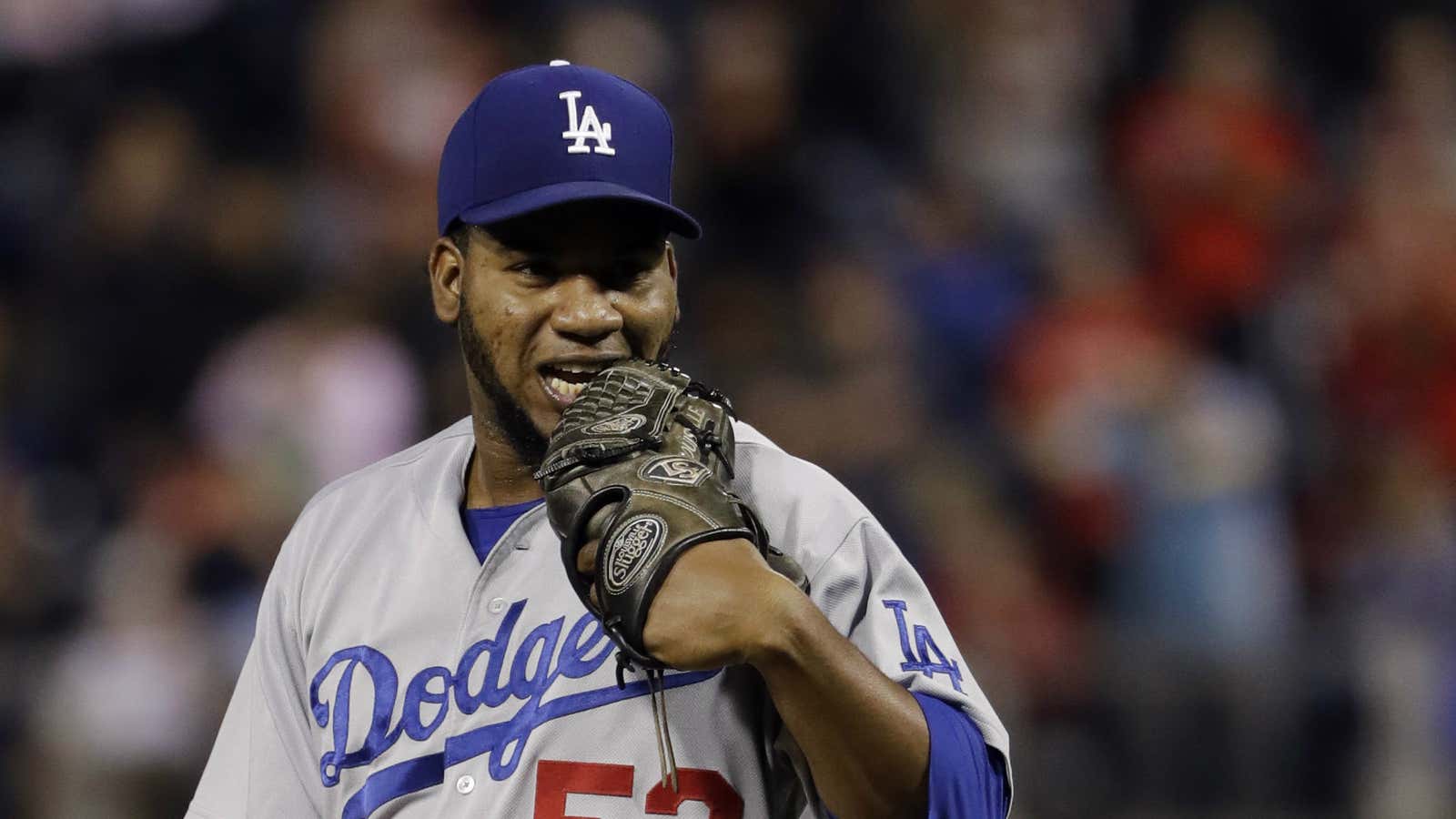The Boston Red Sox and Los Angeles Dodgers face off at the start of baseball’s World Series today (Oct. 23). They won’t be in a hurry to finish it.
The Red Sox and Dodgers were the two teams that played the longest average games in Major League Baseball’s regular season this year. Both averaged three hours and thirteen minutes per game, nine minutes longer than league overall.
These prolonged games were not primarily a result of dilly-dallying—though the Dodgers have the pitcher who takes the most time between deliveries in Pedro Baez. It’s mostly because the teams are so hard to get out. The Red Sox scored more runs than any other team, and the Dodgers ranked fifth. Both teams also have unusually choosy hitters. The Dodgers walked more than any other team, and the Red Sox were sixth.
Still, the people who run Major League Baseball won’t be happy to see such long games take place on the sport’s biggest stage. In the mid 1940s, baseball games took a little over two hours, on average. Today, they test fans’ attention spans with games that typically take over three hours. (That’s roughly the same as the average NFL game, but about an hour more than typical professional basketball, hockey, and soccer games.)
Major League Baseball thinks this is a problem, and has made speeding up the pace of play a priority. Last year, the league introduced rules to limit the time between innings and during pitching changes, reducing the number of times managers could stop the game to speak with their pitcher. This year, games were about four minutes shorter than they were in 2017, mostly because of the reduced time between innings.
Still, games in 2018 were almost 10 minutes longer than they were 10 years ago. To really reduce game length, more drastic action is needed. The league is considering instituting a pitch timer, which would penalize teams that took more than 20 seconds to make a pitch, and a rule that extra innings would begin with a hitter on second base. Both have been trialed in the minors, and while the extra-innings rule appears have an effect, the timer has not.
Bill James, the godfather of baseball analytics and now a senior advisor for the Red Sox, thinks the league is addressing the problem all wrong. On the podcast Econtalk, James explained that each individual player has an incentive to delay the game so that they control the pace of an at-bat, and almost no incentive to speed it up. If you try to fix specific problems like taking too much time between pitches, the players will just figure out other ways to slow things down.
He suggests that the league penalize teams financially for long games, or take away some of their home games. That way, teams will come up with innovative ways to speed things up. “[I]f you really want to solve the problem you would have to manage the incentives involved rather than managing the details of it,” said James. Major League Baseball should hurry up and listen.
